Hello world, we are group 12 of LFS 350 in the University of British Columbia. This blog will be dedicated to record the process of our course project – Vancouver Food Asset Map – UBC Food Assets. Let’s start with getting to know our 5 group members:
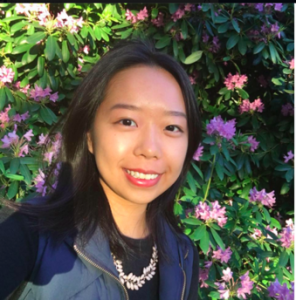
Alison Liu
Hi there, I am a third-year Food, Nutrition and Health major. I have a passion for food and health, as well as sharing my passion to other people. I am also interested in healthy living style. On a regular day, you can often find me cooking healthy meals at home, working out with friends and trying to balance school work with extracurricular activities. I enjoy interacting with different people and am always fascinated by how much I can learn from others
I chose this project because I find the idea of food assets map fascinating. It is a very straightforward idea and I can see how it can be a very valuable tool for those who are facing the problem of food security in Vancouver. I chose this project also because I want to gain a good understanding of the food assets around my own university. Through this course, I wish I can strengthen my skill in working in a team and in a community setting. I would also want to improve my observational, analytical and communication skills.
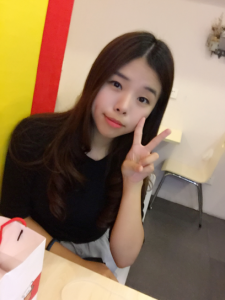 Jenna Fan
Jenna Fan
I am a third year student in Food, nutrition and healthy major. I love travelling, taking photos, cooking and eating delicious foods. I also love doing some exercises like running and biking in the gym after school. I am interested in the relationship between food and human life. I would like to learn how to live a healthy life with eating well, how I can balance between eating and exercising, and how I can cook healthier meals. I love making new friends and listen to their interesting life experiences, because I can always learn a lot from them.
I chose this project because through the term, I can contribute to solving the food insecurity of the community by filling out the food assets map, develop food accessibility and serve it as a tool to those people in need. It is great to be involved in the community and help others. And I love to work with people as a team, so that I can learn from others thus improve my own skills. Through the course of LFS 350, I wish I can improve my skills on working with community organizations, and also my communication skills and abilities to collect data.
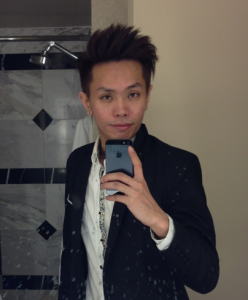 Terry Chou
Terry Chou
I am a 4th year student majoring in the food, nutrition and health program. I love hanging out with friends and tasting different foods in different places, and I also love playing sports, such as basketball and badminton. I am interested in the nutritional values of various food products that we consume on daily bases, and at the same time I also have a lot of passion in the field of psychology.
The reason of choosing this project is that it is very thought provoking to understand the places where people can grow, prepare, share, purchase, obtain, and even learn about food. The food asset map highlights these places, and by acquiring these information, it provides us with further insights about the problems of food security that some people might face. Moreover, on the individual level, this project offers me an opportunity to sharpen my skills in various areas, such as data collection, data examination, and most importantly communicative skills.
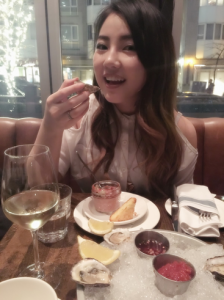 Nicole Lu
Nicole Lu
Third year nutritional science student; I love cooking, and I enjoy to add a healthy twist to any dishes I love. Cheers to the world give us great food and wine!Reasons for choosing this
Here is why I chose this project: from my past years of studying in UBC I focus more on the nutritional value of good and the scientific facts behind food and never thought about how do we get access to food. However, this project brings me an opportunity to investigate the surrounding environment and lay my eyes on the different side of food concerns: food insecurity. My passion is to help people achieve a healthier living style, and doing the food asset map will help people to obtain more accessible healthy food. Through this project, I wish I can improve my communication skill and eventually do some down to earth work to help the community we live in.
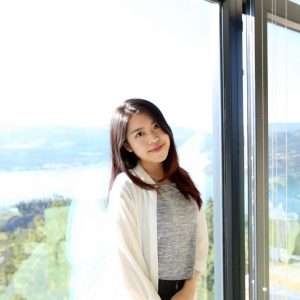 Alice Hu
Alice Hu
I’m a third year student in Food Nutrition and Health major. I love dancing and cooking for the people I love. This project stands out to me the most since UBC is where we spend most of our time studying and living. I learned from another FNH course that first and second year students at UBC are most at risk of experiencing food insecurity. Therefore, I’m excited to step into our community and work with the community partners to gather all the useful information in the food asset map particularly for UBC. It will be benefitcial for every member of this community, especially for new students coming to get to know UBC better. I think LFS 350 would be a great opportunity for us explore a more interesting aspect of the food system.
Group objective
The Vancouver Food Assets Map is an online tool that shows the food assets, which are Food places where people can grow, prepare, share, buy, receive or learn about food, in Vancouver.The map has the following goals: 1. To provide a tool to community members and partners for locating community food assets that is current, easy to use and easily updated. 2.To build community capacity and support food access for community members dealing with food insecurity.3. To make it easier for Vancouver community partners to view and utilize community food assets strategically. The objective of our project is to collect data on all the food assets available on campus and on the UBC endowment lands. Moreover, we will be reviewing the map for current assets and filling in the gaps.
The objective of our project is to collect data on all the food assets available on campus and on the UBC endowment lands. Moreover, we will be reviewing the map for current assets and filling in the gaps.
Community Partner
We will be working closely with Vancouver Costal Health, the organization that is in charge of the development of Vancouver Food Asset Map.
First impression
Although we are all in the faulty of Land and Food System and have been living in Vancouver for quite a few years, none of us has heard about the idea of Vancouver Food Asset Map prior to this class. After reading about the description of project, we all thought this project is very meaningful because it can be a very useful tool for people who are struggling with food security in the city. However, after attending the introduction section presented by Public Health Dietitians Teya and Kathy, we realize this project can be quite a challenge. It is more than just simple data collection. It also requires us to be able to work in a flexible way, such as effectively communicating with community members. Also, the UBC Food Assets Map has not been updated for a while and there might be a big gap for us to fill.
We realize that as university students, we might be confident that we have a lot more book knowledge than the community members. But as Ernesto Sirolli said in his TED talk video , it is to very significant to listen to the needs of community members, understand the local people, before jumping into helping the community.
Therefore, we will be using asset-based community development. Traditional ways of thinking always emphasize on the needs we must meet, the deficiencies we must overcome, and even the problems we must face; asset-based community development, on the other hand, focuses on the capacities and assets we have, it provides an optimistic mental map, and lastly it involves the participation of the community members.
All of us are looking forward to starting the new chapter of UBC food assets map, as we will be making a difference in the society.
